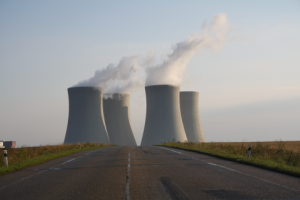What does the catastrophic record-magnitude earthquake in Japan mean to the worldwide energy industry?

With the disastrous events in Japan following the record magnitude earthquake, the country has experienced some problems with one of its nuclear power stations in Fukushima.
Nuclear reactors are meant to be built to withstand seismic activity, but the plant is still experiencing some significant difficulties, with numerous explosions and precautionary evacuation zones reported.
These events have led to some worldwide concern of the overall safety of nuclear power, and there are calls for an evaluation of safety measures in the construction of new nuclear plants across the globe, in particular those that are built in areas prone to earthquakes.
Whilst there could be some re-thinking of the safety of nuclear plants, the more immediate effects on the energy industry come from Japan itself running low on power.
With Japan losing a significant portion of its energy generation from the damage to its nuclear industry, and with a massive recovery effort to organise, it is expected the Japanese will try to snap up liquefied natural gas (LNG) and fossil fuels to keep the country’s lights on and its transport systems running.
This dash for LNG and fossil fuels by Japan could lead to a rise in oil or gas prices, which could then be felt by the rest of the world.
Any effect on prices would come on top of repercussions from the on-going civil unrest in the Middle East with the situation in Libya, one of the worlds top oil sellers, not looking to be resolved in the immediate future.
